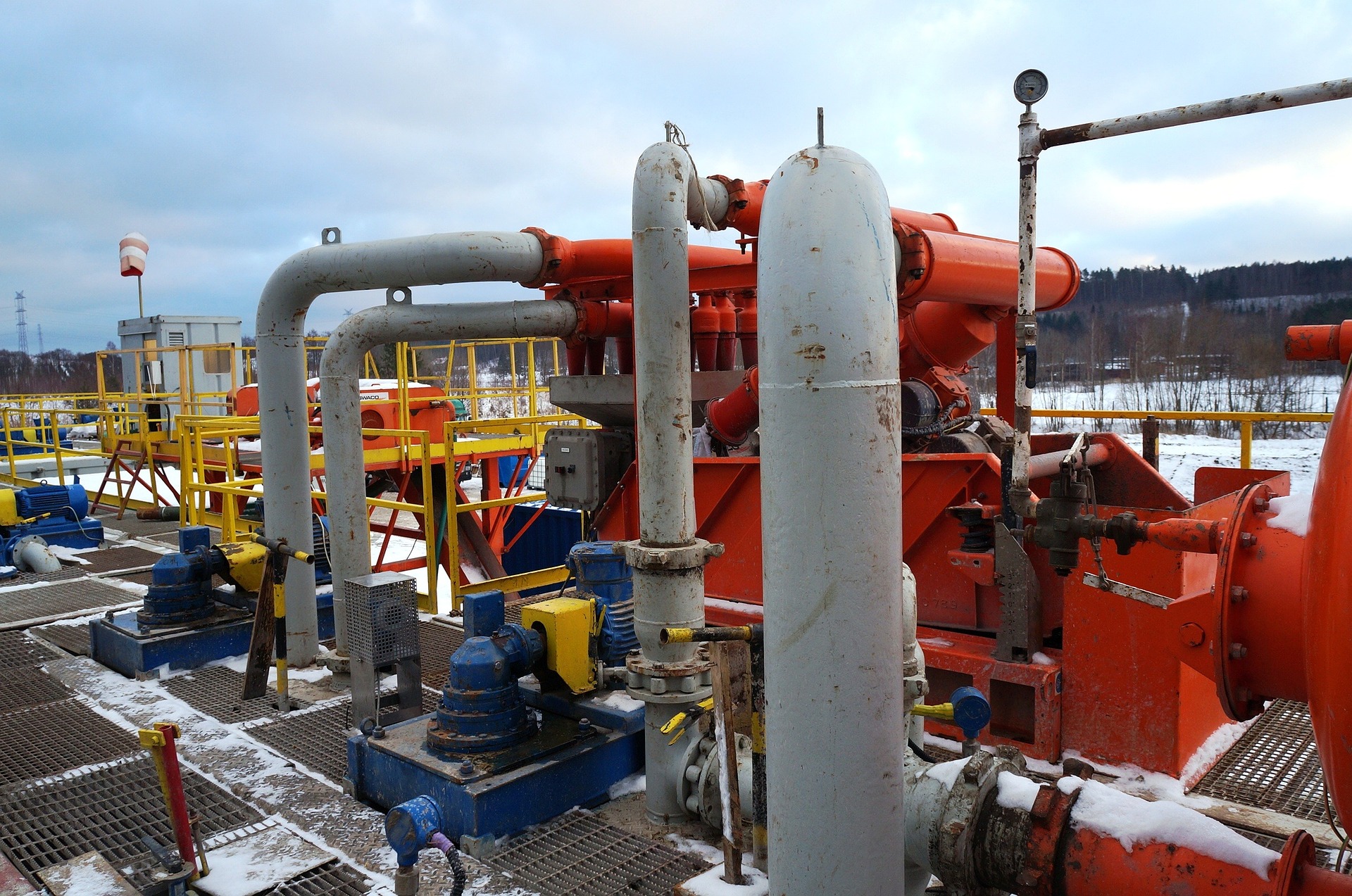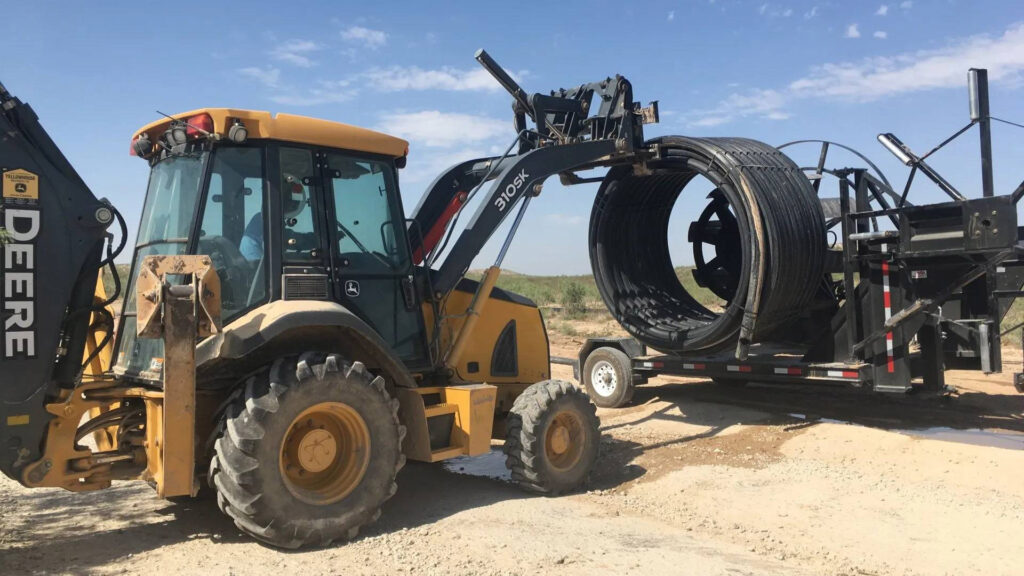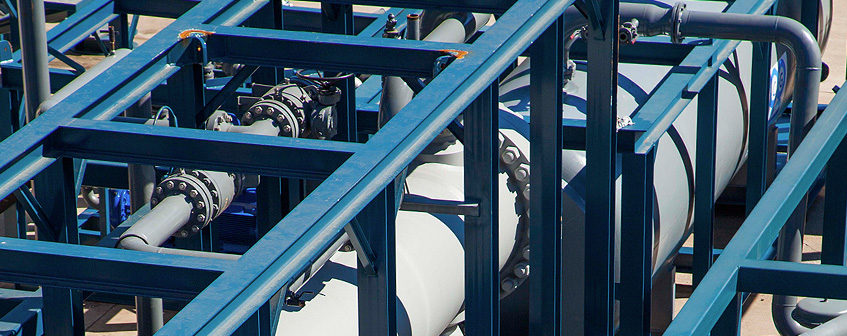Superior Oilfield pipeline equipment rentals vs buying equipment: financial comparison
Wiki Article
A Comprehensive Overview to the Different Kinds Of Oil Field Equipment and Pipeline Equipment Available
The oil and gas sector depends greatly on specific devices for reliable removal and transport. Numerous kinds of equipment, from piercing rigs to tank, play crucial roles in this complicated process. Each tool serves distinct features that add to total functional success. Recognizing these elements is necessary for anybody associated with the market. As the sector develops, so too do the modern technologies that sustain it. What advancements are on the horizon?
Drilling Rigs: The Backbone of Oil Expedition
Drilling rigs work as the important equipment in the domain name of oil exploration, enabling business to gain access to hydrocarbon reserves buried deep under the Earth's surface area. These rigs can be found in various kinds, consisting of land rigs, offshore rigs, and mobile devices, each developed to operate in specific settings. Geared up with advanced innovation, piercing rigs can penetrate geological developments with precision, ensuring effective resource removal. The architectural integrity and operational capacities of these rigs are important, as they have to stand up to extreme problems and significant pressures. The selection of an exploration gear affects the overall task cost and timeline, making it a crucial consideration for oil business looking for to enhance their exploration initiatives and make the most of performance in their operations.Pumps: Important for Liquid Movement
In the oil extraction process, the duty of pumps is significant, helping with the motion of fluids throughout different phases of production. Pumps are essential for moving unrefined oil, water, and various other liquids from below ground storage tanks to the surface and after that via pipes to refineries. They can be found in numerous types, including centrifugal, positive displacement, and completely submersible pumps, each serving particular objectives based upon the fluid qualities and operational requirements. Centrifugal pumps are commonly used for their effectiveness in high-flow applications, while favorable variation pumps excel in taking care of thick fluids. The option of pump influences total effectiveness, functional security, and upkeep costs. Appropriate selection and maintenance of pumps are vital for maximizing production and reducing downtime in oil area procedures.Shutoffs: Managing Circulation and Pressure

Shutoffs play an important duty in taking care of the circulation and pressure of liquids within oil fields and pipelines. Different sorts of valves offer distinctive applications, each created to meet specific functions basic for efficient operation - Superior Rentals fusion machines. Understanding the attributes and uses these valves is essential for optimizing system efficiency and safety and security
Sorts of Valves
Essential components in oil area operations, valves play an important duty in managing the flow and stress of fluids within pipes and equipment. Various kinds of valves are utilized to fulfill the varied needs of oil and gas manufacturing. Typical types consist of entrance valves, which offer a straight-line circulation and marginal pressure decline; world valves, understood for their throttling abilities; and sphere shutoffs, identified for their fast on/off control. In addition, check shutoffs avoid heartburn, while butterfly valves provide a lightweight service for controling flow. Each valve kind is made with details materials and arrangements to stand up to the severe conditions frequently discovered in oil fields, making sure integrity and efficiency in operations. Comprehending these types is crucial for effective system administration.Valve Applications and Functions
While various types of valves serve distinctive objectives, their main applications focus on managing flow and stress within oil and gas systems. Shutoffs such as gateway, globe, and ball valves control liquid movement, making certain peak performance and safety. Entrance shutoffs are generally used for on/off control, giving marginal flow resistance. World shutoffs, on the other hand, deal accurate circulation policy, making them suitable for throttling applications. Sphere valves are preferred for their quick procedure and tight securing abilities. In enhancement, stress alleviation shutoffs are important for avoiding system overpressure, securing devices honesty. In general, the suitable choice and application of shutoffs improve functional effectiveness, guaranteeing the dependable transport of oil and gas with pipes and processing facilities.Compressors: Enhancing Gas Transportation
Compressors play an essential duty in the effective transport of natural gas, ensuring that it moves efficiently through pipes over cross countries. These gadgets enhance the pressure of gas, allowing it to overcome friction and altitude modifications within the pipeline system. Additionally, compressors promote the balancing of supply and need, accommodating changes in usage and production prices. Different sorts of compressors are employed in the market, consisting of centrifugal, reciprocating, and rotary screw compressors, each offering unique benefits based on the functional demands. Regular upkeep of these compressors is vital to make best use of efficiency and minimize downtime, ultimately adding to a trusted gas transport network. Their crucial feature underscores the significance of compressors in the total oil and gas infrastructure.Storage Tanks: Safe and Efficient Liquid Administration
Reliable transport of gas depends on various find this sustaining systems, one of which is the correct monitoring of storage space tanks. These tanks play a necessary duty in securely having liquids, making sure that operational performance is maintained while lessening ecological dangers. Constructed from resilient materials, they are made to endure high stress and destructive components. Properly sized and tactically situated, tank help with the smooth flow of gas and various other fluids, avoiding traffic jams in supply chains. Routine upkeep and tracking are vital to find leakages or architectural concerns, promoting safety and security and compliance with governing standards. Inevitably, the reliable management of storage tanks is crucial for the overall honesty and dependability of the oil and gas sector's fluid handling systems.
Pipeline Equipments: Infrastructure for Transport
Pipeline systems work as the foundation of the oil and gas sector, helping with the effective transport of hydrocarbons over large ranges. These systems consist of different components, including pipes, shutoffs, pumps, and compressors, all meticulously created to ensure smooth circulation. The materials made use of in pipeline construction, typically steel or high-density polyethylene, are selected for toughness and resistance to rust. Pipeline networks can cover across land and water, connecting production sites to refineries and circulation. Additionally, progressed modern technology enables real-time tracking of flow prices and pressure degrees, enhancing operational effectiveness. The calculated placement of these pipelines lessens ecological effect while making the most of resource ease of access, thus playing a necessary role in conference power needs internationally.Safety Equipment: Making Certain Employee and Environmental Management
The operation of pipeline systems, while essential for power transport, likewise provides significant safety and security challenges for workers and the environment. Safety and security devices plays a significant function in alleviating these dangers. Personal safety tools (PPE) such as helmets, gloves, and non-slip footwear safeguards employees from physical risks. Furthermore, gas detection systems keep an eye on for leakages, making certain that dangerous materials do not posture a risk to personnel or the bordering environment. Emergency situation closure systems are important for rapidly stopping operations throughout a situation, preventing prospective disasters. Spill containment materials, including absorbents and barriers, are basic for reducing environmental influence. Overall, purchasing all-inclusive safety tools is crucial for maintaining functional integrity and securing both employees and the atmosphere in the oil and gas sector.
Frequently Asked Inquiries
Exactly how Do I Pick the Right Oil Field Equipment for My Job?
Selecting the ideal oil field tools involves reviewing job specs, budget plan constraints, and operational requirements. Think about variables such as equipment reliability, compatibility with existing systems, and the supplier's reputation to guarantee peak efficiency and security.What Are the Upkeep Demands for Oil Field Equipment?
Maintenance demands for oil field devices consist of routine evaluations, lubrication, and timely repairs. Operators must additionally follow maker standards, display efficiency metrics, and warranty compliance with safety guidelines to boost long life and efficiency.
Exactly How Can I Ensure Conformity With Environmental Laws?
To ensure compliance with ecological regulations, companies should click over here now carry out routine audits, carry out best techniques, spend in training, keep appropriate paperwork, and stay upgraded on legislation (Superior Oilfield pipeline equipment rentals). Cooperation with ecological agencies can also improve adherence to regulationsWhat Is the Ordinary Life Expectancy of Pipeline Equipment?
The typical lifespan of pipeline devices typically ranges from 20 to half a century, relying on variables such as material top quality, environmental conditions, and maintenance practices. click to find out more Normal assessments can substantially influence durability and operational effectiveness.Exactly how Do I Securely Move Oil Field Equipment to Remote Locations?
Delivering oil area equipment to remote places calls for mindful preparation, including path analysis, securing licenses, using ideal cars, and guaranteeing security procedures are adhered to. Appropriate training and interaction among crews are important for successful transportation.Report this wiki page